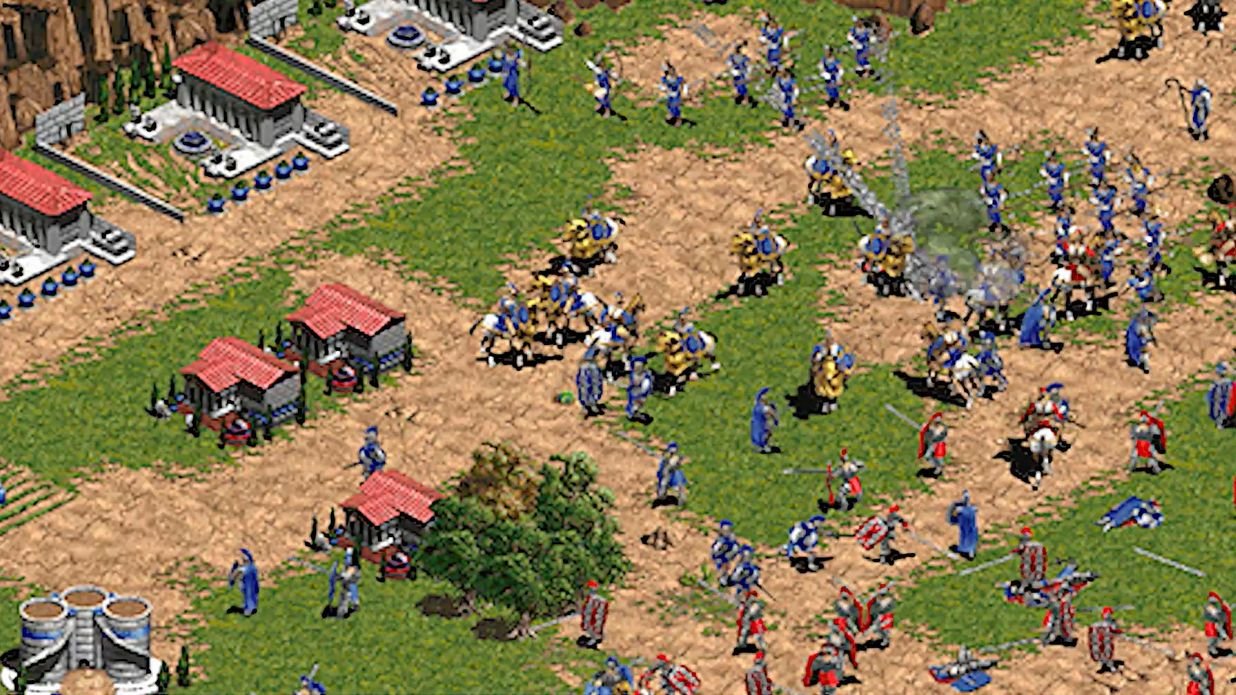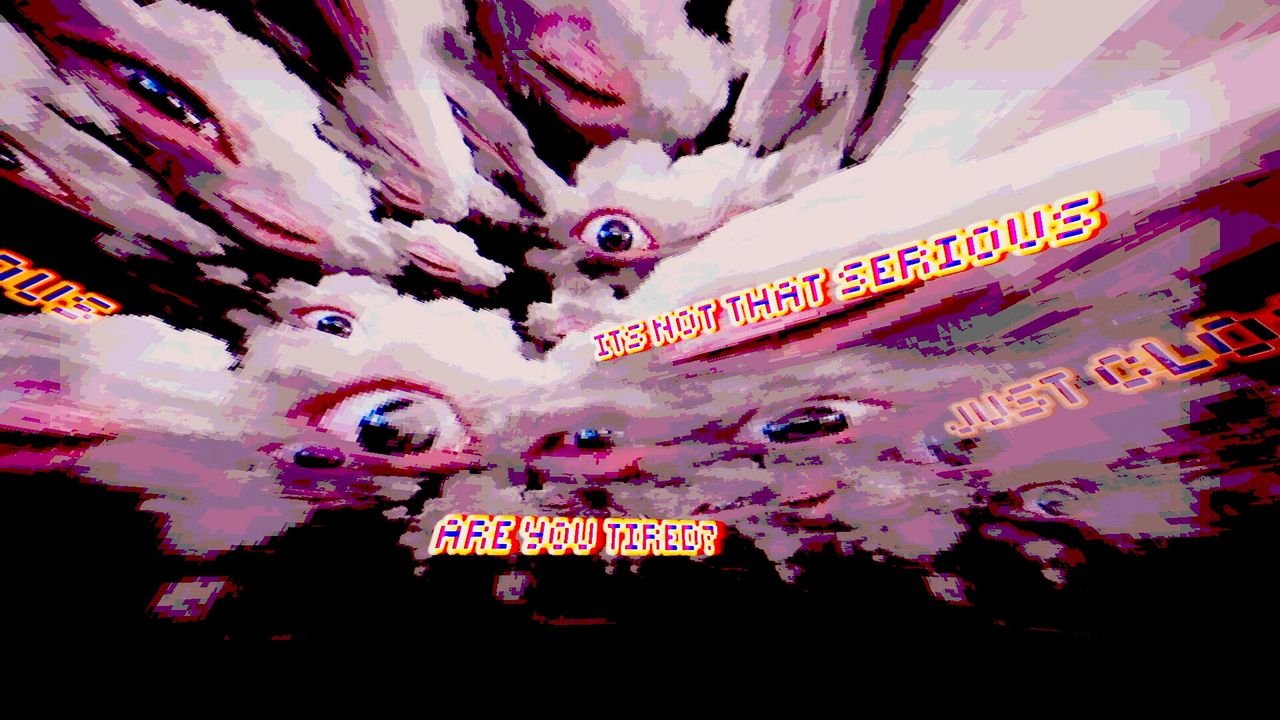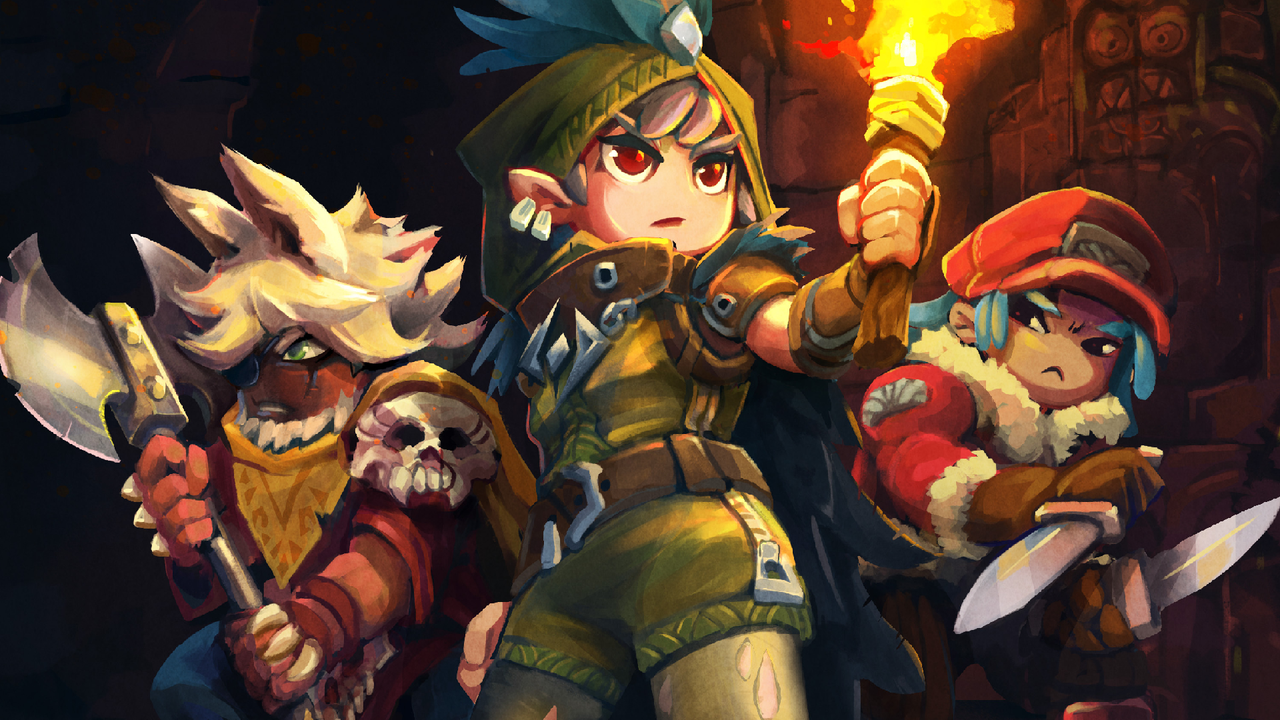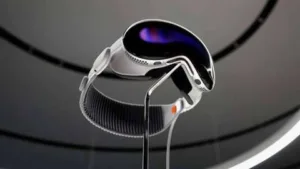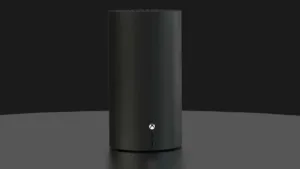Every Marvel Cinematic Universe TV show, ranked

Which Marvel shows are canon Marvel Cinematic Universe and which aren’t? The fan debate rages on unchecked, but Marvel Studios president Kevin Feige semi-answered the question when he implied that the multiverse business that’s dominated the MCU for the last few years makes everything semi-canon, somewhere.
Still, some Marvel shows — particularly the Disney Plus run beginning with 2021’s WandaVision, the point where Marvel Studios stopped licensing its characters all over the place — are more canon than others. And some Marvel shows are better than others. Marvel Studios worked out a popular formula for its billion-dollar movies, then applied the same formula to its shows, better integrating them into the MCU, but also turning them into just one more vehicle for setting up future plotlines and characters while neglecting the story supposedly being told. How do other companies’ canon approaches to Marvel stories compare to that dynamic ? We put every installment of MCU-integrated TV on the same scale to rank them and find out.
[Ed. note: Not included on this list are pre-MCU Marvel shows like Blade, or Marvel shows that were specifically declared non-MCU canon in their day, like the excellent mind game Legion, the X-Men spinoff The Gifted, or the animated series Guardians of the Galaxy. Latest update: November 2024, to include What If…? season 2, Echo, and Agatha All Along.]
25. Helstrom (2020)

2020’s Helstrom was the last of the live-action MCU shows released on Hulu before the launch of Disney Plus, and it was canceled after one nearly universally panned season. The show is borderline unwatchable, a dour procession of exorcist and paranormal tropes with only the loosest connection to the comic book characters it’s based on. Following a pair of siblings with demonic blood that gives them superpowers, it lacks likable characters, meaningful stakes, nuanced performances, or even impressive special effects. If you’re looking for a spooky supernatural story about fighting demons, check out Evil on Paramount Plus. If you want superheroics, you’re better off watching anything else on this list. —Samantha Nelson
24. Inhumans (2017)

Originally planned as an MCU movie and its own MCU sub-franchise, Inhumans suffered in part from the same thing that gave it so much potential: It’s built around an entire society hidden from the rest of the world, where separatist superpowered folk live according to their own laws. But a series about supers who aren’t attached to human society has none of the relatable aspects that make MCU characters interesting. And the story, about a coup that might turn the Inhumans’ awful, oppressive oligarchy into a different kind of awful, oppressive oligarchy, doesn’t have a lot of stakes for the average viewer.
When an alternate version of Inhumans’ Black Bolt (still played by Anson Mount) eventually turns up in Doctor Strange in the Multiverse of Madness, that gave MCU fans a lot more rooting interest in the character. But it still doesn’t make Inhumans any more interesting or watchable. The acting is stiff, the writing is clunky, bad guy Maximus (Iwan Rheon, famous for playing Game of Thrones sadist Ramsay Bolton) is ridiculously obvious in his clumsy evil, and even once the action moves from the moon to Earth, the story never feels like it’s about actual people. Technically, it’s all there in the series title, so we can’t say we weren’t warned. —Tasha Robinson
23. Secret Invasion

If you gave me 14,000,605 tries to guess the events of the MCU version of Secret Invasion before it came out, I never would have gotten close. Unfortunately, in this instance, that isn’t a good thing. The Disney Plus show was never going to be much like the comic story it gets its name from — mostly a series of massive fights featuring every Marvel character you can think of, and a few more you couldn’t name if you tried. But leading up to release, it seemed like the show would at least involve some hidden identities and intrigue to go along with its all-star cast.
Instead, Secret Invasion never managed to do much of anything except disappoint fans. Its story, about a rogue sect of Skrulls infiltrating the ranks of world leaders and Earth’s mightiest heroes, kept gesturing at being a universe-shattering event. But it only amounted to a bland terrorist plot with one minor twist that didn’t change anything about the larger world of Marvel movies and shows. Worst of all, the show’s just pretty boring. Almost no one important turns out to be a secret disguised Skrull. Their Skrull plot doesn’t threaten anything particularly important. Every fight in the series looks like garbage, and there’s really no tension to speak of. Add all this onto the fact that it’s completely out of step with the plot of The Marvels, and it seems likely Secret Invasion is a show Disney and Marvel desperately want fans to forget. —Austen Goslin
22. The Guardians of the Galaxy Holiday Special (2022)

James Gunn’s Christmas special featuring his take on Marvel’s Guardians of the Galaxy team is consciously cheesy, but the self-awareness doesn’t make it any less grating. At feature length, Gunn has much more space to veer between action, silly character bits, and sentiment, but the roughly 40-minute run time here makes all those twists feel rushed and clumsy, and the humor is particularly forced.
Marvel rounded up most of the GOTG regulars for this outing (apart from Zoe Saldaña as Gamora, for story-continuity reasons), but the story centers on Mantis (Pom Klementieff) and Drax the Destroyer (Dave Bautista) trying to give their buddy Peter “Star-Lord” Quill (Chris Pratt) a traditional Earth Christmas by giving him a human present: his favorite movie star, Kevin Bacon (Kevin Bacon). So the story directly centers the kind of shallow “non-humans trying to understand human stuff” that’s usually more of a welcome side note in GOTG stories, and the results are pretty dire. All the broad, flat conversations about The Meaning of Christmas, meant as retro callbacks to an earlier era of holiday specials, are meant to feel playful and nostalgic, but they aren’t clever enough to feel like commentary instead of copycatting. —TR
21. Runaways (2017-2019)

Frankly, Runaways would probably be several notches higher on this list if the titular runaways had run away earlier. Brian K. Vaughan and Adrian Alphona’s original comics series, which launched in 2003, let the young protagonists find out early that their parents were powerful supervillains, and run off together out of fear and frustration, leading to plenty of plots about homeless kids coming to terms with their powers and fighting villains without adult assistance. But the 2017 TV adaptation spends its entire first season with the kids wheel-spinning about what to do after they see evidence their parents are murderers. As they dither in uninteresting ways, the series dilutes the focus on their characters further by giving equal screen time to their parents’ soap-operatic power struggles and relationship dramas.
Subsequent seasons finally put a little more focus on the young heroes, but the show really never overcomes the problem of its overcrowded cast, or its baffling attempt to make the parents personable and sympathetic, even as they’re systematically exploiting and murdering young people. And its focus on short-term, quickly resolved subplots, like a trying-to-be-current plot about mind control spread through cell phones, prevented the show from building up series stakes or meaningful energy. —TR
20. Cloak & Dagger (2018-2019)

The Freeform show Cloak & Dagger started off strong, driven by the powerful chemistry between Tandy Bowen, aka Dagger (Olivia Holt) and Tyrone Johnson, aka Cloak (Aubrey Joseph), teenagers trying to understand their new powers and the nature of the accident that sparked them. Because the writers were focusing on extremely minor Marvel characters, they didn’t need to adhere to comics canon — they were free to deliver a mix of heady wonder and romance, combined with sharp examinations of police brutality, addiction, and corporate malfeasance.
That early charm wore away as the show’s stakes increased and the comics tropes piled up. A twist on fridging meant to be edgy still came off as unnecessarily brutal, the writers tried to make the show’s least interesting character work by giving her an evil personality, and both seasons ended in near-apocalyptic conflicts. It isn’t a terrible YA adventure, but it’s a textbook case of diminishing returns. —SN
19. Iron Fist (2017-2018)

The first season of Iron Fist was rightly maligned for its rich, white man-child hero Danny Rand (Finn Jones) using his Chosen One powers to show up the people of color who are meant to be his loyal friends. But when Raven Metzner took over as showrunner for season 2, he oversaw a remarkable course-correction by shifting the focus away from Danny and building up the supporting cast.
Sacha Dhawan does a remarkable job as Danny’s brother-in-arms-turned-bitter-rival Davos, and Luke Cage cop Misty Knight (Simone Missick) is just as dismissive of Danny’s abilities as a vigilante as she works to come up with better solutions to Chinatown’s problems. The writers still didn’t seem to know what to do with some of the supporting cast, and the show continued to suffer from having too many subplots and villains, but it ended in a strange and surprising place compared to where it began. It’s almost sad that there wasn’t a third season or spinoff that could have really embraced the potential to explore the MCU’s deep well of mystic kung-fu weirdness. —SN
18. Echo (2024)

Marvel’s short-run series tracking the future of minor Hawkeye adversary Maya (Alaqua Cox), a former protégé of Wilson “Kingpin” Fisk, stays resolutely low-key and small-scale compared to other contemporaneous MCU stories: It’s far more of a crime thriller than a superhero story. After shooting her former mentor in the face at the end of Hawkeye, Maya returns to the small Oklahoma town she came from, and starts to reconnect with her Native American heritage while plotting a takeover of Kingpin’s organization. Kingpin, who survived the shooting, has other plans. Five episodes doesn’t give this story a lot of room to breathe, and Maya, a Deaf woman who communicates in sign, is so tightly controlled and repressed that it can be hard to get much nuance out of either her relationship with crime or her relationship with the equally impassive, close-to-the-vest crime overlord who still wants her in his fold. The idea of going small-scale and personal for a different type of MCU story is a good one, but Echo veers between appealingly distinctive and far too inert. —TR
17. Agents of SHIELD (2013-2020)

ABC’s Agents of SHIELD was the show most closely tied to the MCU before Disney Plus came along. It stars recurring MCU film character Phil Coulson (Clark Gregg), who is mysteriously resurrected after being killed by Loki in The Avengers, then tasked with leading a group of agents investigating everything from rogue Asgardians to cyborgs. The show’s first season was written to complement the Captain America: The Winter Soldier revelation that SHIELD had been infiltrated by Hydra, which gives the story an excellent twist as several main characters show their true loyalties.
But that connective tissue wore thin over time, and later seasons saw the characters sent to space or entirely different timelines so they could avoid intersecting with the MCU films. When the show is firing on all cylinders, Agents of SHIELD is among the top Marvel series, embracing the genre-bending sensibilities of comic book stories and a heavy dose of meta humor. Unfortunately, it spends a lot of time foundering, taking several seasons to become a true ensemble show, and even then, struggling with separated characters and a rotating cast of varying quality. —SN
16. The Punisher (2017-2019)
Jon Bernthal’s gruff, fierce portrayal of Marine-turned-vigilante Frank Castle is the true highlight of Daredevil season 2, and the first season of The Punisher is among the best stories in the Netflix MCU. While the character’s legacy is highly problematic, showrunner Steve Lightfoot manages to keep the show from being just a brutal revenge fantasy by delivering plots that examine PTSD, the military industrial complex, and ethical hacking. The show is also buoyed by a fantastic supporting cast, with Ben Barnes playing an all-too-charming villain, and Castle’s sidekick, Micro (Ebon Moss-Bachrach), giving the series some desperately needed levity.
The second season fails to recapture that magic, though, with Micro’s absence keenly felt and DHS agent Dinah Madani (Amber Rose Revah) going from fierce foil to victim. That season’s plot also feels like a retread of the same conflicts presented in season 1, with little new to say. Most of the Netflix MCU shows experienced a quality dip after their first season, but The Punisher’s second and final outing was the worst offender. —SN
15. The Defenders (2017)

Netflix’s single-season crossover series attempted to be a kind of miniature TV version of The Avengers, one-upping Daredevil, Jessica Jones, Luke Cage, and Iron Fist by bringing all the heroes together in one big plot line. It lacks Avengers’ impact or scope, but it does share some of its strengths: Bringing these four heroes together in different combinations lets the writers explore their personalities and abilities in new contexts. As they banter and snark at each other, they highlight some of the individual faults that bugged fans of their solo shows. And as they learn to work together, the ways their abilities and personalities synergize injects some fresh energy into their individual stories. The overplot here is disappointing, but the characters themselves are generally both funnier and more thrilling than they were on their own. —TR
14. Werewolf by Night (2022)

Cheeky in the same way as The Guardians of the Galaxy Holiday Special but a lot more nuanced in its sense of play, the one-off (so far) Halloween special Werewolf by Night leans heavily on classic Hollywood horror and Hammer Film Productions movies for its particular brand of self-aware cheese. But it also tells a solid (though abbreviated) story about misfits facing off and teaming up to address a power shift in a family of monster-hunters. It doesn’t feel like a part of MCU continuity — the tone and look are radically different from any previous MCU story, which is a breath of fresh air — but longtime Disney composer turned director Michael Giacchino confirms that it’s part of the mainline MCU narrative, which raises a ton of fun questions about the implication of this weird, gleefully ghoulish little side story. —TR
13. Luke Cage (2016-2018)

The first half of the first season of Luke Cage is nearly perfect, with Mike Colter’s titular hero with unbreakable skin still struggling to make a real difference when fighting against the formidable mix of criminal and political power wielded by Mahershala Ali’s Cornell “Cottonmouth” Stokes. Yet the series takes a hard turn when Stokes is replaced by the generic psychopath Diamondback (Erik LaRay Harvey), and it becomes borderline unwatchable. Season 2 is more consistent, though it never really reaches the highs of season 1.
It’s too bad that the Netflix MCU ended before showrunner Cheo Hodari Coker could really develop the examination of moral compromises he was clearly setting up with Luke walking dangerously close to Stokes’ path by the end of season 2. But in spite of those flaws, Luke Cage is a vibrant portrait of Harlem, with an impeccable soundtrack and fantastic performances that call on the significant charisma of Colter, Ali, and Theo Rossi, who plays Stokes’ opportunistic underling Shades. While the other Netflix MCU shows largely focus on withdrawn, brooding heroes, Luke Cage revels in his powers and fame, which gives the show a uniquely bombastic quality. —SN
12. Hawkeye (2021)

It’s reasonable that so many of the Marvel shows following Avengers: Endgame deal with that movie’s world-changing aftermath and the characters who are mourning, coming to terms with loss, and reflecting on their identities. But coming after several more dynamic shows dealing with the same issues, Hawkeye feels unusually small and low-key, with minimal ambitions and a notable lack of original unique elements. It gets a little borrowed energy by bringing in a dangling plot thread from Black Widow and a villain from Netflix’s Daredevil, but mostly it feels like an attempt to introduce a new hero (Hailee Steinfeld as Kate Bishop) and to MCU-ify some other relative Marvel Comics obscurities. The show isn’t bad, it just isn’t much. —TR
11. What If…? (2021-2023)

The first season of What If…? went underseen and underrated, possibly a victim of MCU fatigue, prejudice against animation, or fans’ feeling that speculative multiverse stories don’t matter to MCU continuity. (Little did they know, back in 2021.) But it’s much more of a thrill than the Marvel stalwart gave it credit for: Its nine episodes start with straightforward “Make one change to the Marvel Universe” stories (Peggy Carter gets the super-soldier treatment instead of Steve Rogers, Erik Killmonger has a crucial early meeting with Tony Stark, and so forth). But once the AU training wheels are off, the season rapidly escalates, becoming big, cosmic, exciting, and dangerous. Season 1 is really about the integrated package, not any individual episode.
But season 2 lets the show down significantly, posing a bunch of much less iconic questions and not coming up with many memorable answers. The climactic conflict isn’t as memorable or as wild, and its nods to far-flung MCU characters feel a lot more rote than the careful integration of the first season. This is a show that literally has the license to do anything: Seeing it do so little with that freedom is particularly disappointing. —TR
10. Jessica Jones (2015-2019)

Jessica Jones had the mixed blessing of a stellar first season with a near-unbeatable villain in Kilgrave (former Doctor Who star David Tennant), whose voice is inescapably mesmeric, to the point where people kill each other or themselves at his casual verbal command. Krysten Ritter gives a consistently layered performance as the superhumanly powerful title character, a detective trying to ignore the deep traumas Kilgrave inflicted on her in the past, while dealing with his return. If the subsequent two seasons had been as targeted and intense as the first one, this series would probably top this list. Instead, Jessica Jones suffers from the way its second and third seasons lose focus, tension, and personal stakes by comparison. Still, it’s well worth sitting down to that first season, a street-level superhero series, crime procedural, and personal story about abuse and recovery all rolled into one. —TR
9. Moon Knight (2022)

Is Moon Knight a canon part of the MCU? Executive producer Grant Curtis says it is, but apart from the tiniest references — a mention of Black Panther’s Ancestral Plane, another of Madripoor — the links are minimal, tenuous, and easily explained away, given Marvel Studios’ new focus on multiverses. Still, Disney Plus includes the show on its “MCU in timeline order” list, placing it right after Hawkeye.
But Moon Knight’s lack of visible MCU tie-ins also leaves it light on the usual burdens of forwarding a giant franchise’s narrative agenda. That gives creator Jeremy Slater and his team plenty of room to tell their own thrilling weird-adventure story, built heavily around the mystery of what’s going on with Steven Grant (Oscar Isaac), whose visions of a supernatural world sometimes coincide with blackouts that leave him with blood on his hands and a contemptuous voice in his ears. The ending is rushed per usual in an MCU series, but most of what happens on the way there is engaging, exciting, and actually pretty weird and daring for an MCU show. It’s all boosted by Isaac’s clear enjoyment of his wild dual role, a constant series of surprising reveals, and action that takes place both on a worldwide scale and a very personal one. It’s one of the stronger MCU series, marred mostly by a tendency to zip past important plot points without letting them breathe and to spend too much time on largely irrelevant red herrings. —TR
8. She-Hulk (2022)

Jessica Gao’s series She-Hulk has a whole lot going on in its first season — too much to fully cohere by the end, though its week-to-week attempts to balance a legal drama, a fourth-wall-breaking comedy, and a wry running commentary on societal sexism are still a lot of fun to watch. As the title character, Jen Walters/She-Hulk, Tatiana Maslany carries a lot of weight on her shoulders as she tries to keep the show’s emotions relatable and realistic, even when she’s turning directly to the camera and mocking her show’s structure or the latest plot development. The first season fizzles out a bit by the ending, leaving Jen in a weird state of “Is anything here real, and does any of it matter?”, but the journey to get there is light, airy, and often sharp as hell in its observations about the day-to-day flak professional women have to navigate over their gender. —TR
7. Agatha All Along (2024)

The follow-up to WandaVision revives Kathryn Hahn’s amoral, power-seeking witch and gives her a tragic backstory and what looks like a particularly odd future. But it never fully locks down who she is or what she wants, unless what she wants changes literally from moment to moment. That said, season 1 tells a much more direct, streamlined story than a lot of MCU shows, with more compelling new characters and a lot of “What’s really going on here?” mystery. The central plotline about the Witches’ Road gives the show both a ridiculously catchy ballad (which Marvel exploited to its limit for marketing purposes) and a fairly surprising twist, albeit one entirely in keeping with WandaVision.
If the real intention here was just to put yet another young hero on the board for future Marvel movies, mission accomplished, more or less. If it was to thoroughly confuse the issue of what magic means in the MCU, mission also accomplished. But muddy focus and unanswered questions aside, this quest-driven story is more visceral fun than a lot of MCU shows, from the goofy imaginary police procedural in its opening episode to the high point where the audience finally gets to see what’s going on with Patti LuPone’s theatrical fortune-teller character. —TR
6. Loki (2021)

The first Disney Plus MCU series to get a second season (while leaving the story wide open for a possible third), Loki is an ambitious oddity that introduces new strengths and new faults in just about every episode. The first season is more about setting up a wave of Kang-based Marvel movies than anything else, but it features plenty of striking design, goofy antics, and startling settings. Season 2, on the other hand, loses most of the sense of fun in favor of a dour story that spends far too much time on repetition and technobabble. Given the chance to finally stretch out a little and explore its characters, it simplifies most of them and muddies the rest. At least it expands past that sense of just being another MCU tee-up. But neither season fully gets a handle on Loki himself.
Loki has swung from villain to antihero to hero and back again so many times now that it’s hard to keep score of who he even is anymore. While season 1 put him on a clear track toward finally finding a true “glorious purpose” and an identity that won’t immediately shift, and season 2 seems to land him there. But his arc is one of many in the show that could have been more powerful if it had been more clearly defined. Tom Hiddleston gives the character a wounded humanity, whether he’s playing comedy victim or noble striver, and season 2 at least tries to pay off that humanity with a grand, noble gesture. But while Loki is still more memorable than a lot of Disney Plus MCU shows, it’s frustrating how much of season 2 is devoted to action that makes little sense, and characters making immense choices they never explain. —TR
5. The Falcon and the Winter Soldier (2021)

As a story about how former Winter Soldier Bucky Barnes deals with his many MCU traumas and how Sam Wilson decides to take up the Captain America mantle, The Falcon and the Winter Soldier is pretty rushed, and in the end, clumsy. As a story about a network of secret super-soldiers who could be labeled terrorists or freedom fighters, depending on your perspective, it’s well-meaning, but often just graceless. But as a story about two men trying to separately deal with losing their mentor and inspiration, each resenting the other for doing it wrong until they finally bond over what they learned from him, it’s resonant and thoughtful in a way MCU stories rarely can be.
Anthony Mackie and Sebastian Stan, as the titular main characters, bring a vital combination of warmth and prickliness to their roles, which helps make their sometimes broadly drawn characters feel vulnerable, human, and engaging. At its absolute best, this action bromance is so good that it’s actively frustrating when it blows some of its narrative potential by zipping past important plot points with a hand-wave or a stuffy speech. —TR
4. WandaVision (2021)

WandaVision takes quite a while to reveal its agenda as yet another post-Avengers: Endgame story about navigating grief and loss. It starts with its central character, Wanda Maximoff, in complete denial, having created her own cheery sitcom reality with a re-creation of her dead love, Vision. The series creators play around with that faux reality, jumping through decades of sitcom styles and generally having more fun with design, direction, and overall style than any MCU show so far.
That freedom to creatively explore her character while being outright weird is one of the two biggest things that makes WandaVision a standout. The other is the depth of the series’ emotions, as Wanda navigates her own rage, guilt, and selfishness on top of everything else. The series wraps up messily, with plenty of loose ends that it means to set up future movies, so it never feels like a fully self-contained story, but it certainly is a wild ride while it lasts. —TR
3. Ms. Marvel (2022)

In a world inundated with superhero properties (the 19 on this list are just a drop in the bucket of the broader slate), Ms. Marvel actually managed to make an origin story feel like a treat. Credit any number of creative choices, including the show’s vibrant, Into the Spider-Verse-esque visual identity, or the way it gives protagonist Kamala Khan an actual life beyond the bounds of superherodom. But some acclaim should certainly be reserved for Iman Vellani, the absolute star at the center of it all. She makes Kamala feel alive whether she’s staring down a big bad or a big crush.
In her hands, Ms. Marvel is the all-too-rare MCU property that feels like it has the engine to run for a while, even if it’s still sorting out how to handle Ms. Marvel’s villains or cultural identity. At six episodes, its weakest link (hopefully) is that it’s only just getting started. —Zosha Millman
2. Agent Carter (2015-2016)

Where WandaVision explores what happens when an immensely powerful superhero loses the love of her life, Agent Carter flips the formula by exploring the same kind of grief, but steeping it in powerlessness. After the events of Captain America: The First Avenger, Captain America’s “best girl” Peggy Carter is mourning his supposed death, but also trying to carry on as a hero in an environment that increasingly doesn’t want female heroes.
Mimicking the real-life societal shift that moved women into traditional men’s work during World War II then sidelined them again when the soldiers came home, Agent Carter deals closely with the sexism and condescension Peggy (played fiercely by Hayley Atwell) faces on the job at the FBI-like Strategic Scientific Reserve. When her sexist fellow agents contemptuously treat her like a side-piece Captain America foolishly allowed a little equality, she’s forced to chase down America’s enemies on the sly alongside Howard Stark’s butler Jarvis (James D’Arcy). The series is sharp, with meaningful conflict, a satisfying Marvel-movie overplot, and a noir-movie concept of both the gender wars and the job of a private investigator. Atwell and D’Arcy make a terrific team. And the show even looks spectacular, with a Technicolor-style sense for style. It’s unquestionably MCU-modern rather than a period piece, but it takes all the most beloved ideas about costuming, cinematography, humor, and storytelling from the period it’s evoking. —TR
1. Daredevil (2015-2018)

The first of the Netflix MCU shows, Daredevil established the darker, street-level tone of the venture while still feeling very much like a superhero story, complete with costumes, secret identities, and spectacular fights. The one-shot hallway fight scene proved that Marvel didn’t need a movie-sized budget to create epic set pieces, while the battle between Daredevil (Charlie Cox) and Bullseye (Wilson Bethel), which weaponizes every stray object found in a newsroom provides a strange mix of high stakes and whimsy.
But even more astounding than the combats are the performances. Cox is absolutely believable in his portrayal of a hero driven by a mix of rage and Catholic guilt as he tries to make the world better, both as a lawyer and as a vigilante. Vincent D’Onofrio’s Kingpin is a study in how to make a compelling villain. The show is also a launchpad for The Punisher, with Frank Castle serving as a perfect cautionary tale of what Matt Murdock could become if his friends don’t keep him in check. Daredevil isn’t perfect: The back half of the second season descends into an endless onslaught of ninja to set up The Defenders, and the writers never seemed to know what to do with some of the supporting cast. But the show never failed to be creative and ambitious, and its finale provided a satisfying and hopeful conclusion to a major chapter in superhero television. —SN

